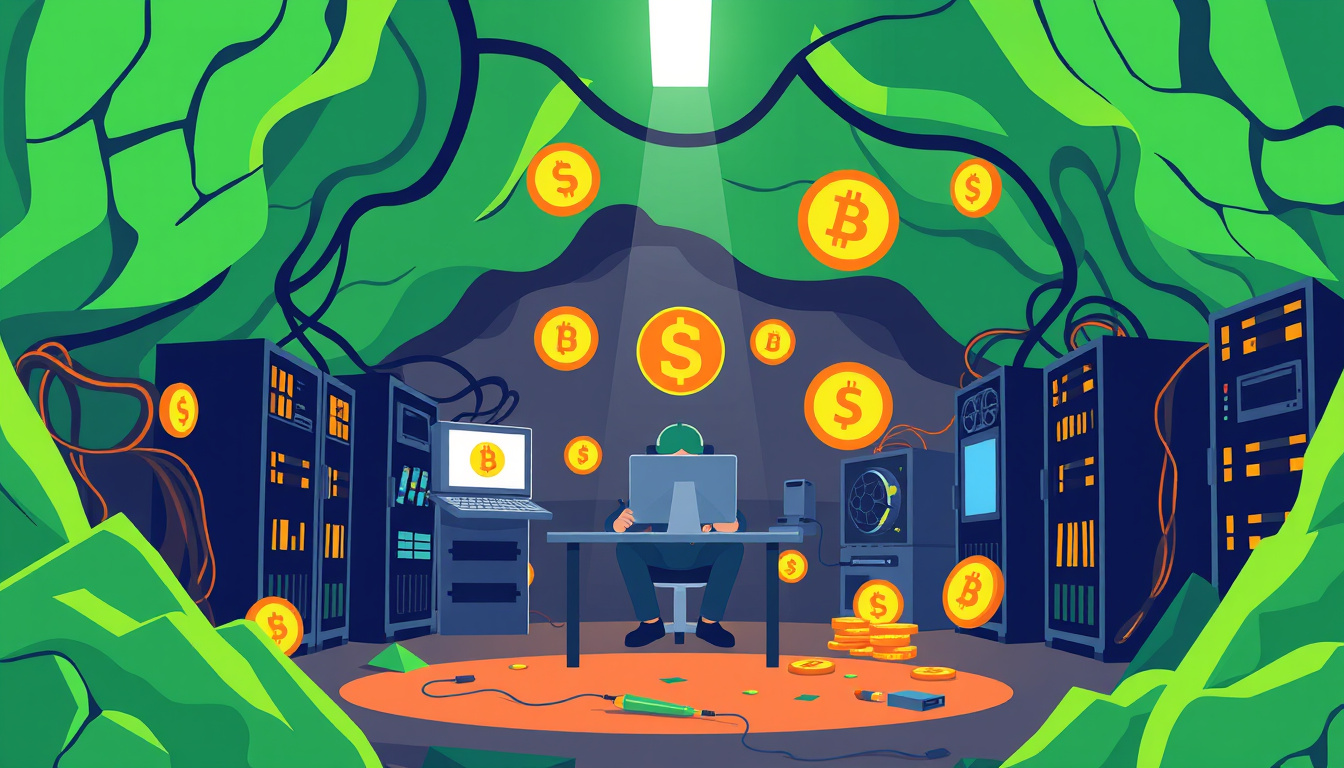Unlocking the Secrets of Solo Mining: A Comprehensive Guide to Independent Cryptocurrency Mining Success
Solo mining, the act of mining cryptocurrencies independently rather than through a pool, has garnered significant interest among cryptocurrency enthusiasts. This guide aims to shed light on what solo mining entails, its benefits and challenges, and how one can successfully embark on this journey.
What is Solo Mining?
Solo mining refers to the process of using your own hardware to mine cryptocurrency without contributing to a mining pool. In this approach, miners are responsible for solving complex cryptographic problems on their own. When a miner successfully mines a block, they receive the total block reward, which includes both the block subsidy and any transaction fees contained within the block.
How Does Solo Mining Work?
To begin solo mining, you need to set up a node connected to the cryptocurrency network. The following steps outline the basic process:
-
Set Up Blockchain Node: Install the appropriate software for the cryptocurrency you wish to mine. This software will allow your computer to connect to the network.
-
Acquire Mining Hardware: Invest in suitable mining hardware, such as ASICs for Bitcoin or GPUs for altcoins. Your hardware’s performance is critical, as it determines your mining efficiency and probability of success.
-
Configure Mining Software: Configure your mining software to connect to your node. This setup allows your hardware to communicate with the blockchain and start the mining process.
-
Begin Mining: Once everything is set up, you can start mining. Your hardware will create hashes in an attempt to solve the current block. If successful, the reward goes directly to your wallet.

The Rewards of Solo Mining
One of the most appealing aspects of solo mining is the potential for a higher payout per successful block mined. Unlike mining pools, where rewards are shared among participants based on their contributed hash rates, solo mining means you keep all rewards.
-
Higher Profit Potential: Since the entire block reward goes to you, if you successfully mine a block, the payout can be substantial, particularly in networks with high block rewards.
-
Independence: Solo miners have full control over their mining activities, including the choice of nodes and the management of their hardware.
-
Contributing to Network Security: By running your own node in a decentralized manner, you’re helping to enhance the security and integrity of the blockchain.
The Challenges of Solo Mining
While solo mining offers certain advantages, it also comes with its share of challenges:
-
High Variance: The chances of successfully mining a block can be extremely low, especially in established networks like Bitcoin. Solo miners might find themselves waiting a long time between rewards.
-
Initial Investment: Setting up a solo mining operation requires significant investments in hardware and electricity. This can deter beginners or those with limited funds.
-
Technical Complexity: Managing a mining rig and node requires a certain level of technical expertise, which can be overwhelming for newcomers.
Tips for Successful Solo Mining
If you’re interested in pursuing solo mining, consider the following tips to optimize your chances of success:
-
Research and Choose Wisely: Select your target cryptocurrency based on factors such as network difficulty, block rewards, and hardware requirements.
-
Invest in Quality Hardware: High-performance mining hardware significantly increases your chances of successfully mining a block. ASIC miners are generally preferred for Bitcoin mining.
-
Monitor and Maintain: Regularly check your mining rig’s performance and ensure that all hardware is functioning correctly. Keeping your equipment in optimal condition can enhance efficiency.
-
Stay Informed: Participate in online communities (like Reddit’s r/BitcoinMining) to share experiences and gain insights from other miners. Staying updated on market trends and changes in mining difficulty can help you make informed decisions.
Conclusion
Solo mining can be a rewarding but challenging endeavor. It offers miners the potential for greater rewards and independence in managing their operations. However, the risks associated with high variance and technical demands can deter many. By understanding the principles of solo mining and preparing adequately, you can position yourself for success in the evolving world of cryptocurrency mining.
